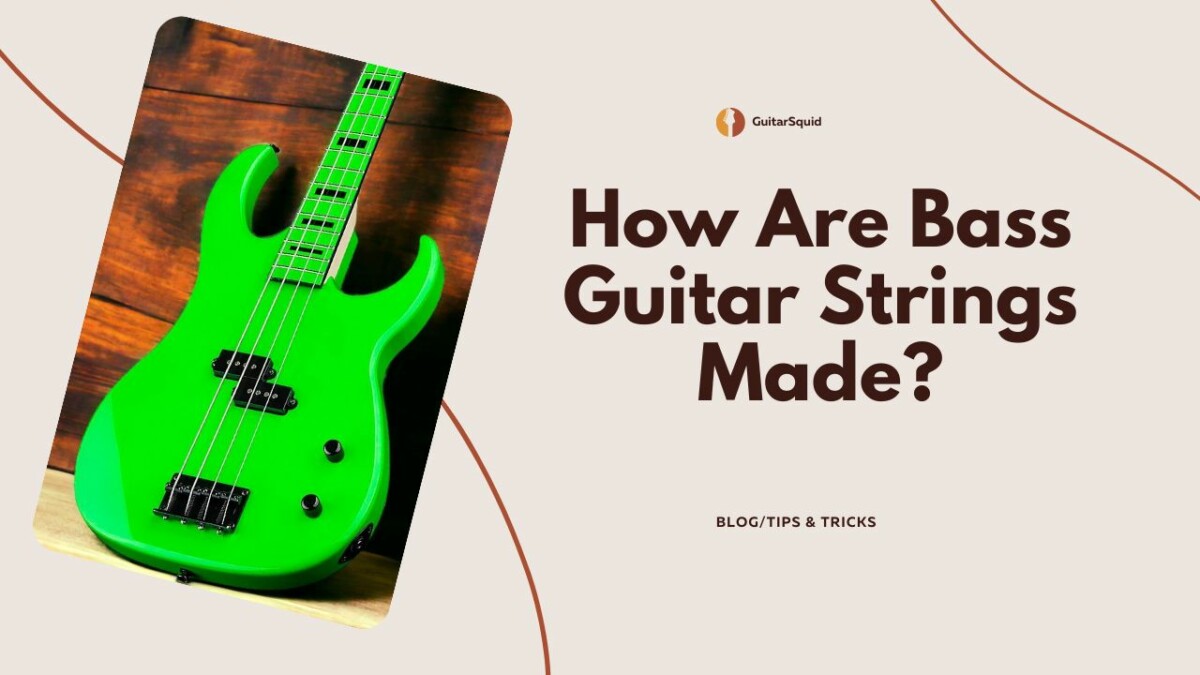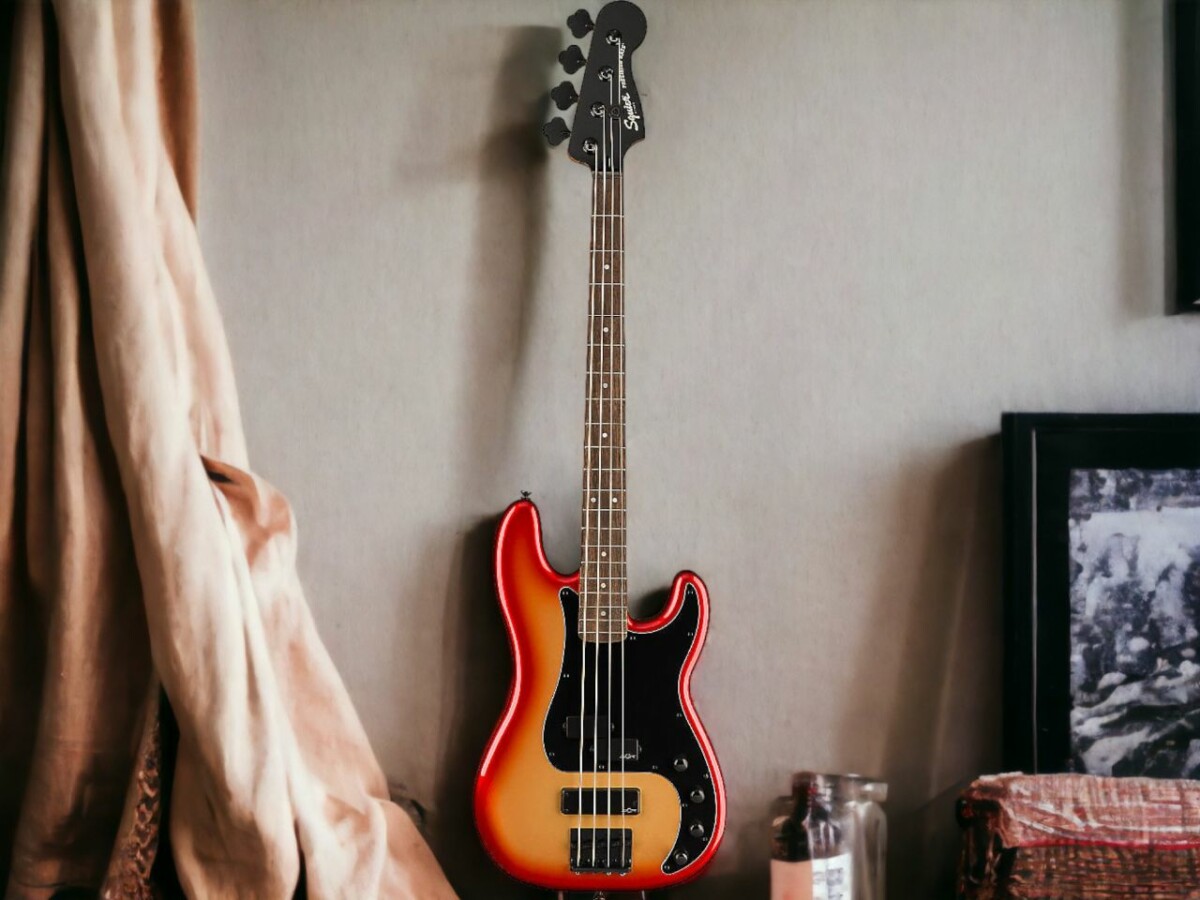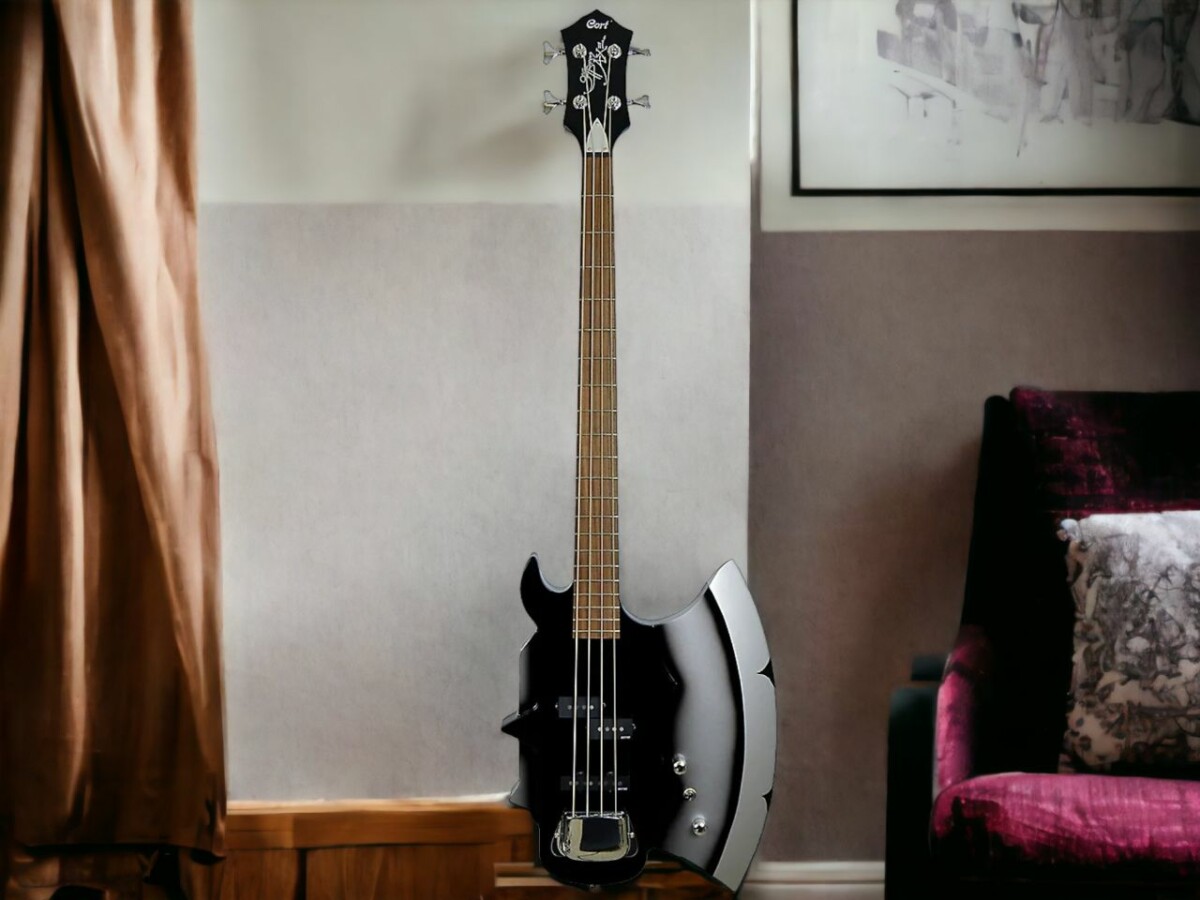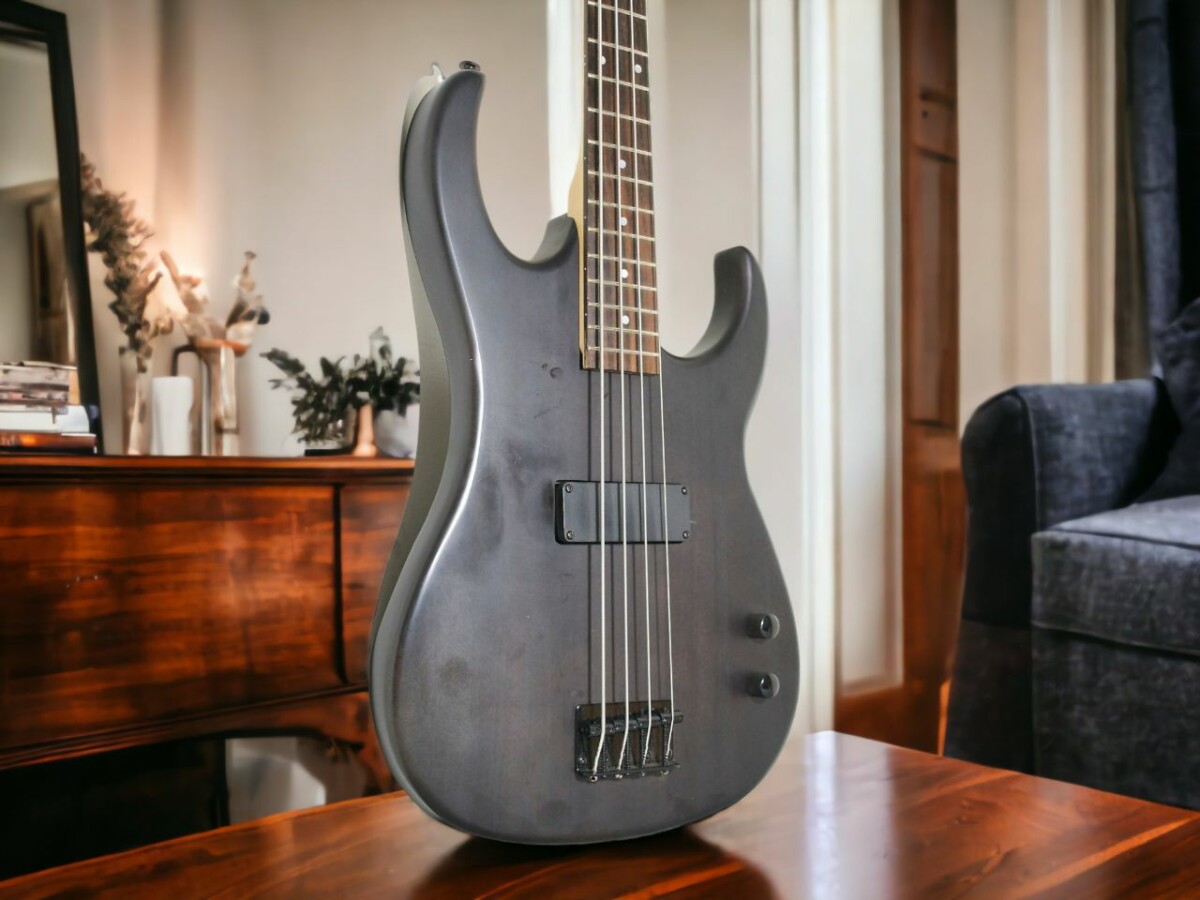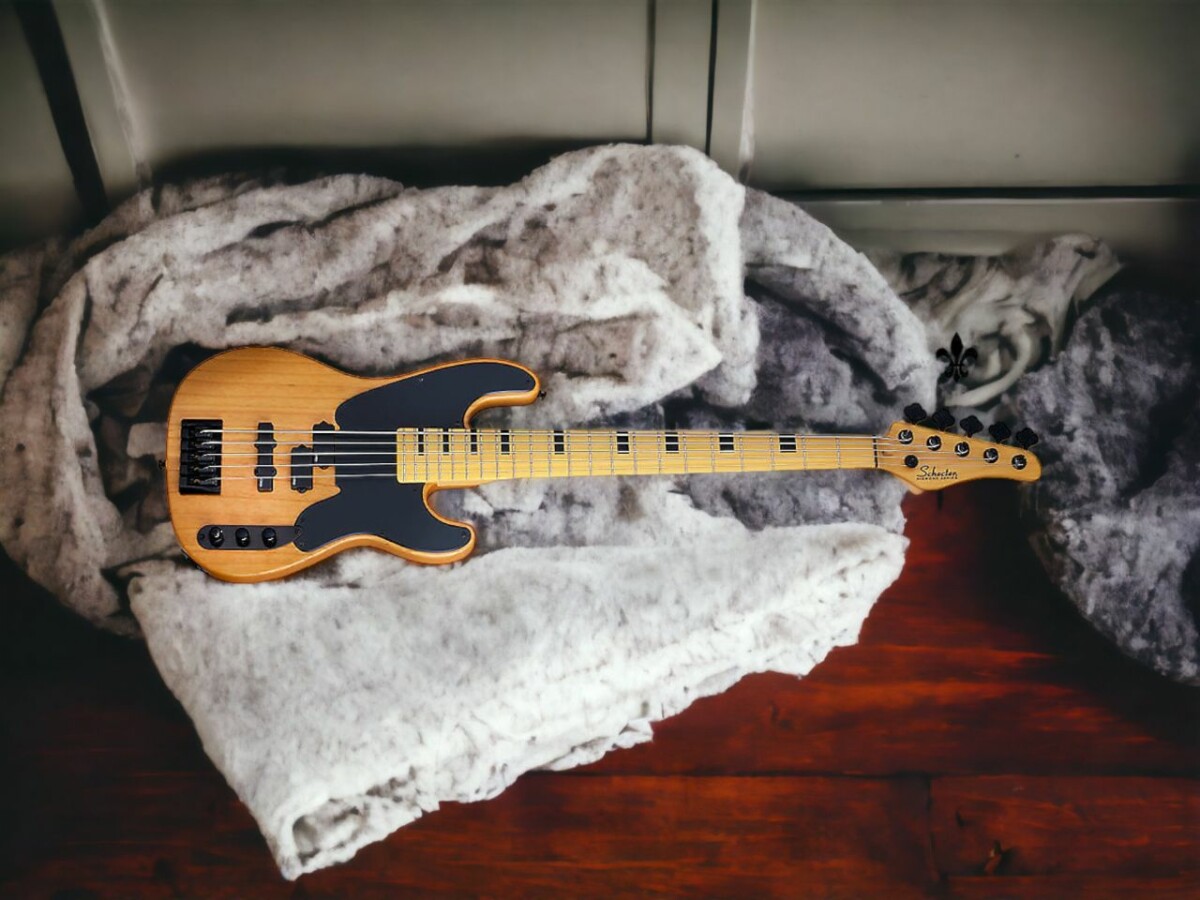Ever pondered what goes into making those sweet bass guitar strings that add magic to your music? Well, you’re about to dive deep into their making. This article peels back the layers on how your favorite roundwound, halfwound, and flatwound strings come to life.
You’ll see how everyday materials, you know, like steel, nickel, and cobalt, don’t just sit there but play a crucial role in giving your bass that distinct sound.
So, buckle up and get ready to step into the intriguing universe of bass guitar strings. It’s not just about hitting the right notes, it’s about understanding the ‘why’ and ‘how’ behind the music. Trust me, it’s gonna be rad!
How Exactly Are Bass Guitar Strings Made?
Crafting bass guitar strings is an art form that involves a handful of key phases. Everything kick-starts with a core wire, usually made of steel.
This core wire could be either round, which gives the string a brighter sound, or even hexagonal, which lets the outer winding stick to it tight.
Once we’ve got our core, it’s wrapped with another metal wire, often nickel or stainless steel, although different materials might be used to tweak the sound tone.
This winding routine results in the thicker strings that you see on your bass guitar.
Post-winding, the strings are snipped to the preferred length, and tiny ball ends are secured to one end, allowing you to fasten the string to your guitar’s bridge.
To wrap it up, the strings go through a series of stretching and checking to make sure we’ve got a pitch perfect, hardcore durable bass guitar string.
Understanding the Varieties of Bass Guitar Strings
As you dive into the vast universe of bass guitar strings, you’ll run into a slew of various materials and designs, each packing its own punch when it comes to sound vibes and ease of play.
You’ll stumble upon strings of all sorts of thickness – the rule of thumb? Thicker strings give you those deep, full-bodied notes. The stuff they’re made of – steel, cobalt, nickel, you name it – plays a major role in shaping the sound you’re going for.
Take steel strings, they’re known for their bright, hard-hitting sound, whereas nickel gives you a softer, more laid-back tone. And then there are the different types of wrappings – roundwound, halfwound, flatwound – affecting how your strings feel under your fingers and the overall sound.
Just remember, there’s no one-size-fits-all. It’s all about what fits your own personal style and the music you’re into. So, keep on exploring!
The Important Role of Gauge in Bass Guitar Strings
Let’s be real, sometimes we don’t give the gauge of bass guitar strings the credit they deserve. But man, it has a huge role in how your bass sounds and feels. The gauge – which is just a fancy word for thickness – of your strings can totally flip the script on your bass’s vibe.
Let’s break it down:
- Beefy strings: These bad boys deliver a deeper, more robust sound that’s music to your ears. The downside? They can be a bit tough on your fingertips.
- Skinny strings: These guys are all about that bright, lively sound and they’re a breeze to play. The catch? They can sometimes miss out on the meaty depth that the thicker strings bring to the table.
- Balanced sets: These are like the best of both worlds. They mix different gauges to give you a sound that’s pretty well-rounded.
But hey, remember it’s not just about the sound – it’s also about how the strings feel under your fingers. So, don’t be afraid to play around with different gauges until you hit that sweet spot that suits your own unique jamming style.
Different Types of Bass Strings: Roundwound, Halfwound, and Flatwound
As you dive into the bass string universe, keep in mind that there’s more than just the gauge to consider—you’ve also got different types of strings to explore. Let’s get into the nitty-gritty of it: roundwound, halfwound, and flatwound.
- First up, roundwound strings. These bad boys are the popular kids in town, known for their ridged feel and bright, clear tone. They’re all about that sustain, but be warned—they can get a bit chatty.
- Next, meet the halfwound strings, aka ground wound or pressure wound. These guys are like the perfect compromise—chilling right in the middle of roundwound and flatwound. They’re rocking a smoother surface, which means less finger noise and a more chilled-out, mellow vibe.
- Finally, there’s flatwound strings. These ones are all about that smooth, flat surface, giving off a deep and warm tone that’s just perfect for jazz and blues. They’re easy on your fingers, but they mightn’t have the punchy brightness you’d get from roundwound strings.
Each type of string has its own unique charm—it really just comes down to what vibes with your style. It’s all about experimenting, so give ’em a try and see what works for you.
Delving Into the Materials Used in Bass Guitar Strings
So we’re about to dive deep into the world of bass guitar strings and the stuff they’re made of. The right material can totally change the game, influencing the sound and how you feel when you’re jamming. It’s a pretty diverse mix, with every material creating its own unique vibe, all thanks to their distinct resonance capabilities that can switch up the string’s tonality.
- Steel: One of the go-to materials for bass strings. Steel strings are all about that bright, crystal-clear sound and the ability to hold that note just a little bit longer.
- Stainless Steel: It’s like steel, but on steroids – brighter tone and way less noise from your fingers sliding around.
- Nickel-Plated Steel: It’s like the perfect marriage between the brightness of steel and that cozy warmth of nickel.
- Nickel: If you’re into that old-school, vintage vibe, nickel bass strings are your best bet. It’s similar to how some bass guitar brands maintain their traditional essence. For instance, Yamaha bass guitars have been known for their classic touch.
- Cobalt: These strings are pretty rad, they’ve got a stronger magnetic relationship with the pickups, giving you more output, clarity, and a wider dynamic range.
Feel free to play around with different materials until you find that perfect match for your style. Remember, it’s all about finding that sweet spot that makes you groove.
How Personal Preference and Genre Influence the Choice of Bass Strings
When you’re immersed in the music scene, particularly if you’re jamming on the bass guitar, your personal taste and the kind of music you’re into can seriously sway the type of bass strings you favor. Let’s say you’re a jazz aficionado, you’ll probably dig flatwound strings. They’re the real deal when it comes to producing that smooth, moody tone jazz is renowned for.
If you’re more into rock or metal, roundwound strings may be your thing. They’re recognized for their vibrant, punchy sound that can really get a crowd going. Speaking of quality sound, many often wonder about the performance of different brands. For instance, one might ask, are Ibanez bass guitars any good?
But hey, it’s not just about the genre. Your playing style is a key player too. If you’re a pick user, you might find that thicker gauges are your jam. On the flip side, if you’re into fingerstyle, lighter strings might hit the sweet spot for you.
And let’s not forget about the material of the strings. Steel strings can deliver a crisp, clear tone, while nickel strings can add that warmer, more mellow vibe to your sound.
But remember, it’s not about finding a one-size-fits-all solution. It’s really about trial and error, and discovering what perfectly vibes with your unique sound and style.
It’s like finding that perfect leather jacket that fits just right – it’s all about personal style, mate! So, keep experimenting until you find that perfect set of bass strings that makes your music come alive. Aside from the strings, the durability and longevity of the instrument matter too. It brings up questions like, how long do bass guitars last?

